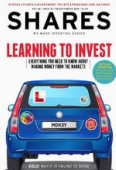Archived article
Please note that tax, investment, pension and ISA rules can change and the information and any views contained in this article may now be inaccurate.
ETFs to help new investors

With more than 2,500 open-ended funds available to UK investors, building an investment portfolio from scratch can often seem incredibly daunting. For newbie investors, many experts suggest using tracker funds as the starting point for your portfolio.
Adam Laird, head of ETF strategy at Lyxor, says: ‘If you’re an inexperienced investor, you want to focus on simple products, mainstream stock markets and low costs. There is no need to overcomplicate things, and that’s why I think ETFs often appeal to beginners.’
ACTIVE MANAGEMENT FAILING TO DELIVER
Research has shown time and again that the majority of active fund managers fail to beat their benchmark over the long-term, so it’s no wonder that a growing number of investors are turning to tracker funds instead.
Exchange-traded funds, or ETFs, are low-cost investment products which aim to mirror the performance of a chosen stock market or asset. Because they are traded on the stock market, investors are able to buy and sell these investments immediately at any given time just as with company shares, and unlike funds which take at least a day to process a trade.
Transparency is another benefit of tracker funds and it can be a lot easier to monitor your progress when investing in a tracker rather than an active alternative. If you hold a FTSE 100 tracker then you only need to check how the UK stock market has performed to judge how your investments are faring. Conversely, an active fund may be a complex basket of hundreds of different company shares, which may only be revealed to investors once a year.
KEEPING COSTS DOWN
Using ETFs at the core of your portfolio can be a great way to keep costs down and ensure your investments are well-diversified, before choosing specific active funds in areas of interest if you wish.
Peter Sleep, senior portfolio manager at 7IM, explains: ‘Most people have heard of the S&P 500 and the FTSE 100 and are able to follow these markets on the TV or radio, so trackers that follow these indices make a good starting point for new investors, as well as a strong core for those who are building more sophisticated portfolios.’
As a starting point, he suggests the iShares Core FTSE 100 ETF (ISF), which tracks the largest 100 stocks on the London Stock Exchange, including insurance group Aviva, Barclays bank and pharma giant GlaxoSmithKline. The tracker costs just 0.07% a year to invest in – equivalent to around 70p per £1,000 invested. Over the past five years the tracker has delivered a return of 40.3% and also yields around 3.9%.
Tracking the UK stock market is often a sensible place for new investors to start. Beginners will often feel more comfortable putting their money into a stock market they can easily track and one which holds a number of companies they have heard of. But sticking to a single stock market is risky as it means your investments are tied to the fortunes of that sole index, so it makes sense to broaden out to other areas too.
BROADEN YOUR HORIZONS
Sleep also suggests investing in the iShares S&P 500 ETF (IUSA), which tracks the largest 500 shares in the US including Facebook, Amazon and JPMorgan. It has the same annual fee of 0.07% and a lower yield of 1.43%.
Over the past five years, as the US stock market has set a string of record highs, it has delivered a hefty return of 79.8%. But while the US has delivered stellar performance in recent years, it has its own risks: the index has a high weight to technology stocks – around 25% – a cyclical sector which is prone to sharp falls up and down.
To offset this risk, Laird suggests that investors go even further afield. He likes the Lyxor Core MSCI World Ucits ETF (LCUW), which tracks an index of 1,600 companies across the world for an annual charge of 0.12%.
This index offers access to stocks in the US, UK, Japan, France and Canada among other countries with investments in the tech, financials and healthcare sectors to name just a few. Over five years the index has delivered a return of 60%. Laird adds: ‘UK investors tend to have a home-bias and often invest heavily in UK shares, but this index is broad and diversified.’
KEEPING IT SIMPLE
Simplicity and cost are the two main advantages that are often discussed when assessing the benefits of trackers but they also offer another great perk: diversification. Trackers, many of which you can invest in for just £25 a month, allow investors to tap into an entire stock market or asset class in one fell swoop. Sleep says: ‘When you think of it like that, it brings home just what a great invention trackers are.’ (HB)
Important information:
These articles are provided by Shares magazine which is published by AJ Bell Media, a part of AJ Bell. Shares is not written by AJ Bell.
Shares is provided for your general information and use and is not a personal recommendation to invest. It is not intended to be relied upon by you in making or not making any investment decisions. The investments referred to in these articles will not be suitable for all investors. If in doubt please seek appropriate independent financial advice.
Investors acting on the information in these articles do so at their own risk and AJ Bell Media and its staff do not accept liability for losses suffered by investors as a result of their investment decisions.
 magazine
magazine









